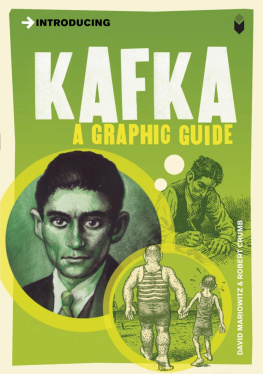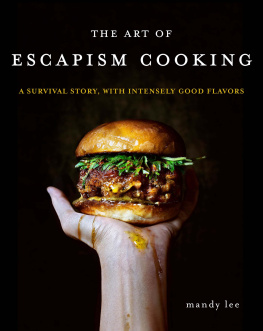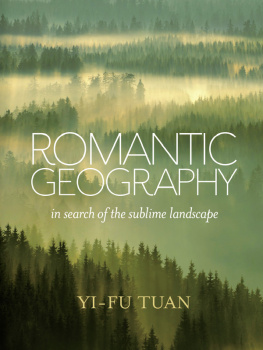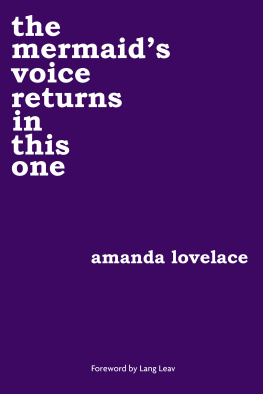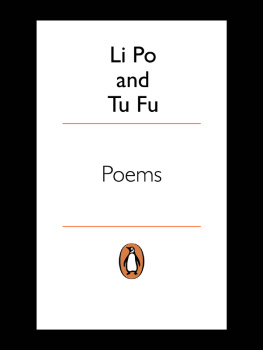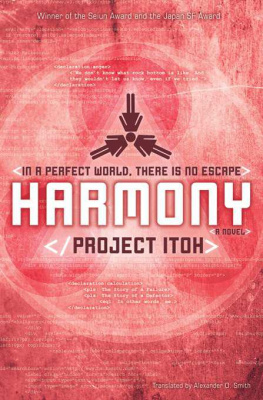Yi-Fu Tuan - Escapism
Here you can read online Yi-Fu Tuan - Escapism full text of the book (entire story) in english for free. Download pdf and epub, get meaning, cover and reviews about this ebook. year: 1998, publisher: Johns Hopkins University Press, genre: Science. Description of the work, (preface) as well as reviews are available. Best literature library LitArk.com created for fans of good reading and offers a wide selection of genres:
Romance novel
Science fiction
Adventure
Detective
Science
History
Home and family
Prose
Art
Politics
Computer
Non-fiction
Religion
Business
Children
Humor
Choose a favorite category and find really read worthwhile books. Enjoy immersion in the world of imagination, feel the emotions of the characters or learn something new for yourself, make an fascinating discovery.

Escapism: summary, description and annotation
We offer to read an annotation, description, summary or preface (depends on what the author of the book "Escapism" wrote himself). If you haven't found the necessary information about the book — write in the comments, we will try to find it.
Escapism — read online for free the complete book (whole text) full work
Below is the text of the book, divided by pages. System saving the place of the last page read, allows you to conveniently read the book "Escapism" online for free, without having to search again every time where you left off. Put a bookmark, and you can go to the page where you finished reading at any time.
Font size:
Interval:
Bookmark:
ESCAPISM
Published in
Cooperation with
the Center for
American Places,
Harrisonburg,
Virginia
Other Books by Yi-Fu Tuan

Pediments in Southeastern
Arizona

The Hydrologic Cycle and
the Wisdom of God

China

Man and Nature

Topophilia: A Study of
Environmental Perception,
Attitudes, and
Values

Space and Place: The Perspective
of Experience

Landscapes of Fear

Segmented Worlds and Self:
Group Life and Individual
Consciousness

Dominance and Affection:
The Making of Pets

The Good Life

Morality and Imagination:
Paradoxes of Progress

Passing Strange and Wonderful:
Aesthetics, Nature,
and Culture

Cosmos and Hearth:
A Cosmopolites
Viewpoint
Yi-Fu Tuan

Baltimore & London
1998 The Johns Hopkins University Press
All rights reserved. Published 1998
Printed in the United States of America
on acid-free paper
9 8 7 6 5 4 3 2
The Johns Hopkins University Press
2715 North Charles Street
Baltimore, Maryland 21218-4363
www.press.jhu.edu
The Johns Hopkins Press Ltd., London
Library of Congress Cataloging-in-Publication
Data will be found at the end of this book.
A catalog record for this book is available
from the British Library.
ISBN 0-8018-5926-3
L IBRARY OF C ONGRESS C ATALOGING - IN -P UBLICATION D ATA
Tuan, Yi-fu, 1930
Escapism / Yi-Fu Tuan.
p. cm.
Includes bibliographical references and index.
ISBN 08018-59263 (hardcover : alk. paper)
1. Escape (Psychology) 2. Nature. 3. Culture. I. Title.
BF575.E83T83 1998
153.3dc21
985366
CIP
To Betty Parsons
and in the memory of
Jim Parsons
Half an hour ago I was walking by the lakeshore. It started to rain, and I escaped into my room. My roommy houseis a haven, a little world that is created to protect me from threatening nature. Thinking along this line soon made me wonder, What is there in culturefrom house to religionthat is not a form of escape?
My body too is nature. I meddle with it, and much of my meddling comes out of a conscious desire to escape from or cover up my animality. An animal eats, has sexual drives, and sooner or later dies. I? Well, I dine, love, and aspire to immortality. Culture is how I escape my animal state of being.
Every Ithe author of this book, for instanceis special. We all like to be special. Yet at a deep level, being special or unique is intolerable. It makes for disconnectedness, loneliness, and vulnerability. Submerging the self in a group, thus escaping from ones singularity, frailty, and openness to change, is a compelling human need. Much good, but also much sorrow and evil, arises out of the need to connect.
Culture is a product of imagination and is driven by imagination. We humans are proud to have it. Yet it frequently leads us astrayinto solipsistic fantasy, the unreal, and the grotesque, and it can tempt us into first picturing, then (too often) acting out evil, creating a sort of hell.
Nevertheless, historically, imagination in its highest flights has led some bold spirits into genuine encounters with the sublimities of the universe. At a more modest level, imagination is constantly at work, enchanting and reenchanting the world, a remarkable example of which is the conversion of land into landscape. A world, however pleasing, is in the end frivolous without moral weight. What does it mean to be good? What does good mean? Striving to answer these questionsand, more important, acting on our best understandingis the closest we, in this life, can get to heaven.
Who hasntsometimewanted to escape? But from what? To where? And once we have arrived at the good place, is this the end of the desire to move? Or does it stir again, tempted by another image, even if it be that of the place from which we startedour old home or childhood? Surely everyone has had the urge to be elsewhere in moments of stress and uncertainty. I have. Yet even though I am a geographer, whose business is to study why and how people move, as well as their ceaseless striving to make wherever they are an even better place, the word escape or escapism rarely came to the forefront of my consciousness, never offered itself as a possible key to the understanding of human nature and culture.
All this changed unexpectedly a few years ago when I received an invitation to write a paper on the landscape of Disneyland. Not being an expert on theme parks, I was initially inclined to say no. But I live in Madison, Wisconsin. The call came in November, and the caller said that prospective authors would be asked to meet in Anaheim, in southern California, where Disneyland is located, in January. Suddenly the word escape flashed across my mental screen: I could shake off the grip of Wisconsin winter for a restorative spell in Lotus Land. I accepted. And how glad I am now to have done so, for not only did I enjoy my visit, it also prompted me to raise questions, the tentative answering of which has produced this book.
I enjoyed my visit, if only because the sunny warmth was most welcome. But, to my surprise, I found Disneyland itself delightful. I say to my surprise because well-educated people, among whom I count myself, are taught to dismiss the theme park as an unreal, fantasy world supported by hiddenand therefore somewhat sinisterforces. My unexpected response led me to ask a series of questions. Granted that theme parks are escapist fantasies, suitable only for the immature, what human works arent? Is there a ladder of aspiration or pretension, at one end of which are the exuberantly or crassly playful and at the other end the deeply serious and real?
Suppose I move down the ladder. What comes after theme park? Shopping mall? It has been attacked as an escapist Eden for mindless consumers. Suburb? Academic detractors have not hesitated to dismiss it as a dull, middle-class playground. They prefer the city. But the city is escapist par excellence, for a city is a citya real city!to the degree that it has distanced itself (escaped) from nature and its rhythms. Is farm life, being so close to nature, the ultimately real? Urban sophisticates in a nostalgic mood seem to think so. Yet farmers have obviously striven to create their own world, and in any proud farmhouse, pictures hang on the wall, artificial light drives out darkness. Hunter-gatherers? They have barely modified their natural environment. They dont have the tools. But they do have the tool of language, and with it they, like all humans, have woven an alternative or complementary reality to which they can resort for support in times of stress and in which they can take delight.
Next pageFont size:
Interval:
Bookmark:
Similar books «Escapism»
Look at similar books to Escapism. We have selected literature similar in name and meaning in the hope of providing readers with more options to find new, interesting, not yet read works.
Discussion, reviews of the book Escapism and just readers' own opinions. Leave your comments, write what you think about the work, its meaning or the main characters. Specify what exactly you liked and what you didn't like, and why you think so.

